Everyone has an opinion about what the perfect pool temperature is, and in most cases, it is just that, an opinion.
A pool temperature that some people consider to be warm others, particularly seniors, may consider cold.
If you like to swim lengths then the ideal pool temperature for swimming will be lower than if you prefer to simply lounge around in the pool.
In most cases, there are no absolute right or wrong answers. The best temperature for your pool is what suits you and the others that use your pool.
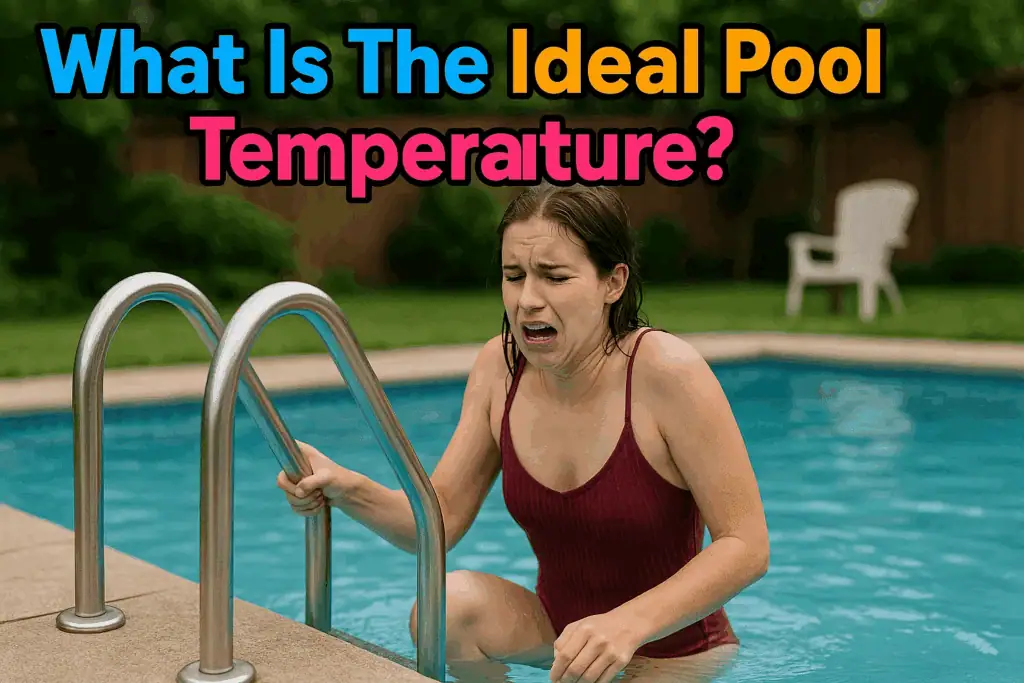
Outdoor swimming pool temperature guidelines
There are targeted temperature ranges for a variety of different pool users that I have included in the table below. These are only a guide.
| Perfect Pool Temperature For ….. | ºF / ºC |
|---|---|
| Seniors | 85ºF – 87ºF / 30ºC – 31ºC |
| Leisure | 78°F – 86°F / 25ºC – 30ºC |
| Babies | 85ºF – 87ºF / 30ºC – 31ºC |
| 1 year old | 86ºF – 92ºF / 30ºC – 33ºC |
| Toddlers | 86ºF – 92ºF / 30ºC – 33ºC |
| Pregnancy | 83ºF – 92ºF / 28ºC – 33ºC |
| Arthritis | 83ºF – 88ºF / 28ºC – 31ºC |
| Swimming laps | 78ºF – 80ºF / 25ºC – 26ºC |
| Water aerobics | 78°F – 82°F / 25ºC – 28ºC |
Swimming pool temperature for seniors
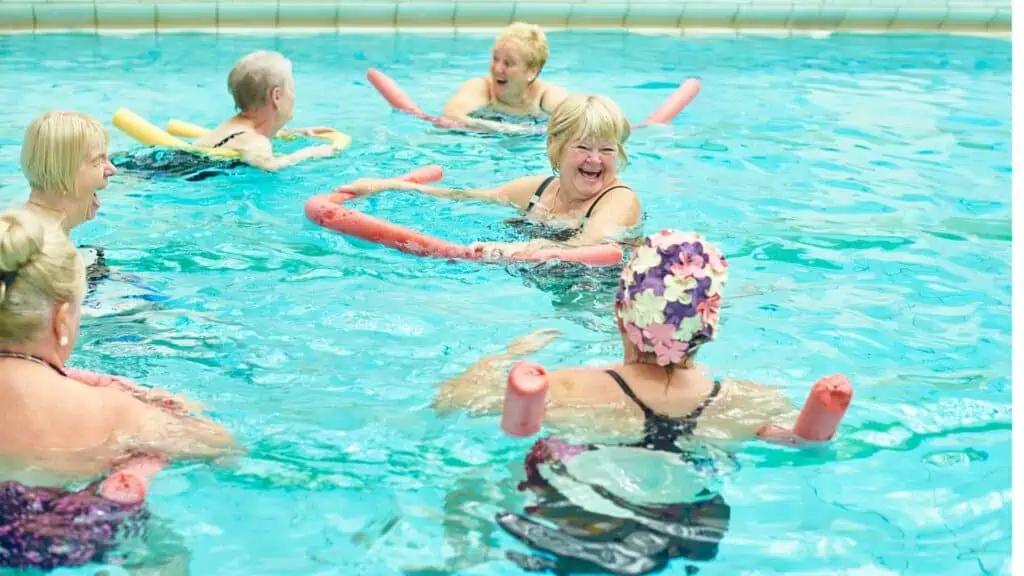
It seems that seniors and babies/young children are treated similarly when it comes to the perfect pool temperature. Both should have warmer temperatures of 85ºF and above.
However, in my experience, many seniors are quite happy at lower temperatures.
Many years ago I was on my honeymoon in Greece as a very lean 25-year-old. It was early April and the hotel we were staying in had an unheated pool. My wife and I spent a few hours lying around the pool on sunbeds while a number of (how can I put this delicately) elderly, rather plump women were in the pool for much of the time talking to each other.
I decided to take a swim so I dived in and the shock almost killed me. The water was incredibly cold. I swam just a few lengths but had to get out because my chest was hurting so much due to the cold. Yet the women didn’t seem to be affected at all.
Comfortable pool temperature for pregnancy
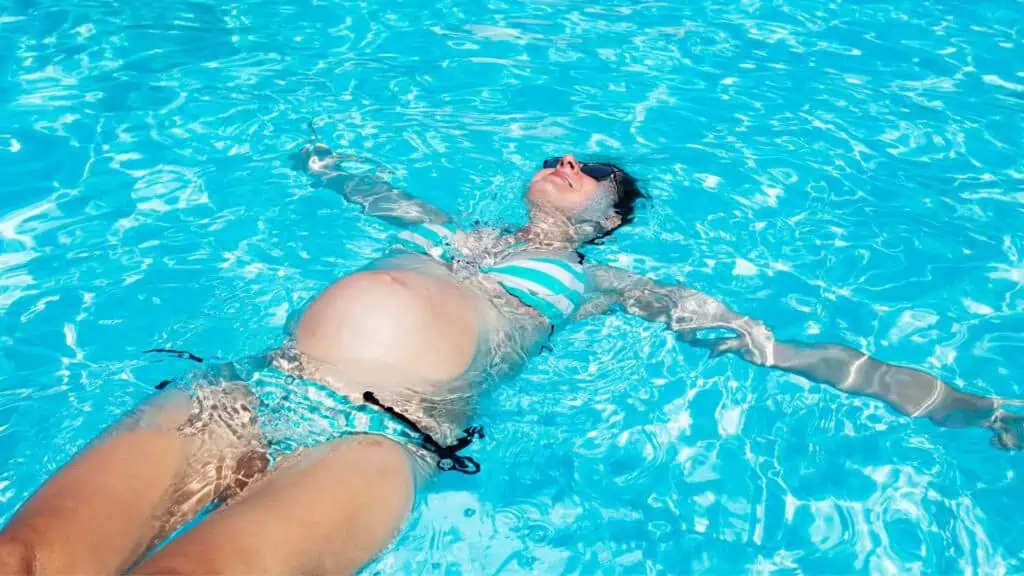
Certainly it would not be a good idea during pregnancy to swim in a very cold or hot pool. The optimal pool temperature range that seems to be recommended is 83ºF to 92ºF. Personally, I would find 93ºF rather too warm.
Healthline has a very good article about swimming during pregnancy which I would suggest you read.
This ScienceDirect article on pregnant women and pool temperature states “Healthy pregnant women maintain body temperatures within safe limits during moderate-intensity aqua-aerobic exercise conducted in pools heated up to 33 degrees Celsius.”
Ideal pool temperature for babies
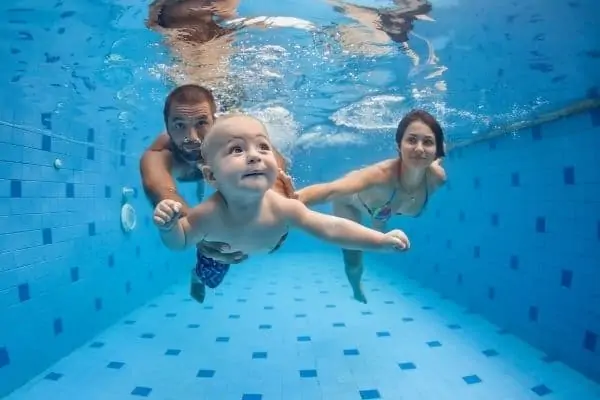
It should go without saying that babies and small children should not be exposed to low or high pool temperatures. You wouldn’t give a baby a cold or a hot bath so it follows that you shouldn’t put a baby in a cold or a very warm pool.
Babycenter.com recommends keeping the water temperature between 85 and 87 degrees Fahrenheit (29.5ºC-30ºC) for the baby’s optimum temperature regulation and comfort. A baby should never be allowed in much colder or hotter water as a baby cannot regulate its body temperature.
Water temperatures below 30 degrees, though they might feel warm to you, can cause your baby to chill too quickly and can pose a risk of hypothermia.
Also read: When can a baby go in a pool
Pool temperature for swimming laps
The official Olympic pool temperature according to FINA should be within one degree of 79ºF so that is probably a good guide for swimming laps. Most who are into adult aerobic lap swimming would be happy in a wider range of temperatures than this.
Of course, most people cannot ensure their pools are within this range so they just have to go with whatever the pool temperature is.
This is the result of a poll that Kyle Sockwell carried out on Twitter and as you can see, the consensus was that 78ºF is the most popular:

Ideal pool temperature for arthritis
The Mayo Clinic advises:
Aquatic exercise in warmer temperatures (84–92 degrees Fahrenheit) is better for people with arthritis, fibromyalgia or pain, as well as those who are frail.
Mayo Clinic
How to measure pool temperature
Unsurprisingly, to measure your pool temperature you will need some form of a thermometer.
The most common type is a floating thermometer, which is convenient unless it is floating in the middle of the pool of course. Most can be tethered, mine is tied to my pool ladder for example. Many have amusing floats on the top such as turtles, dolphins, crocodiles and ducks.
Many thermometers need to be removed to read them while others have a digital display that can be read without removing them.
Some thermometers are sophisticated and can be accessed wirelessly via a dedicated display or even from a cellphone via an app to give a temperature reading.
The Inkbird IBS-P01R Wireless Pool Thermometer below is the most popular on Amazon:
One word of warning ….
I was in a pool store recently and needed a new floating thermometer. I found one I liked and looked at the reading. Then I noticed another identical one in the bin had a different reading. I went through a number of them, all of which had a different reading, some by only a small amount but others by as much as 5 degrees. Obviously, some thermometers are not necessarily very accurate.
Controlling pool temperature
Unlike hot tubs, where you can select a particular temperature and it will automatically be kept at that temperature constantly, it is not so easy with swimming pools.
Many swimming pool owners have no way to control their pool temperature by heating it up or cooling it down so the temperature is largely determined by the elements.
If the weather is very hot then their pool temperature goes up and if the weather is cold then their pool temperature goes down. They just have to use it at whatever temperature it is, or not if it is too hot or too cold.
Others have ways to heat up their swimming pools and maintain the temperature to some extent.
This is the case with my pool. I have solar panels on the roof of my house which help to put heat into the pool and I have a solar pool cover to help prevent that heat from escaping.
When I need to increase the temperature in my pool, I have the solar panels working and also put on the solar pool cover. If the pool starts to become warmer than I want then I leave the solar pool cover off and if that doesn’t cool it sufficiently I turn off the feed to the solar panels. After that, I cannot do anything more.
Some swimming pool owners extend their pool season by investing in pool heaters. In fact, some use a pool heater to allow swimming all year round. With today’s soaring energy prices using a pool heater is not a cheap solution.
Location
Obviously, where you live will greatly affect the temperature of your pool.
If you live in northern latitudes then you probably won’t ever have the problem of the pool getting too hot. But if you live in the south then it is not unusual for the pool temperature to become too hot for swimming, particularly during a heat wave.
For example, it is not unusual for pool owners in Texas and other southern states for their pools to reach 100ºF or higher at times!
If that is the case with you then these are ways to cool a pool down including fountains, running the pool pump at night etc.
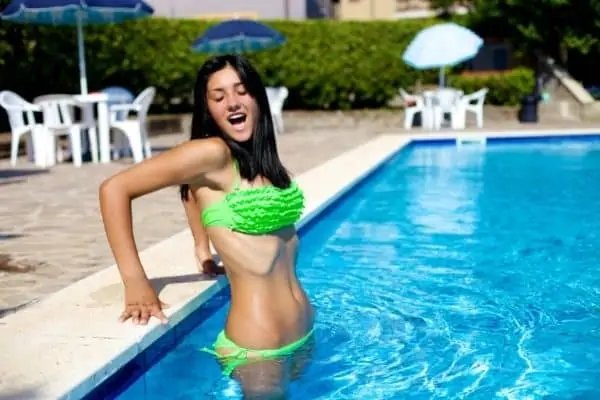
Air temperature
As well as the water temperature being influenced by the air temperature it can also have an effect on the perceived temperature of the pool water.
For example, if your pool temperature was a constant 80ºF:
- if you got in the pool on a hot day when the air temperature was perhaps above 100ºF then the water would feel cool when you get in
- if you get in the pool on a much colder day, say 70ºF, then the water will feel warm
It is all relative!
Health Risks of Improper Temperatures
What if you swim in a pool that is too warm?
If your pool is very warm then staying in for too long, particularly if you are swimming strenuously could cause overheating. But being in hot water for a while is no different from being in a hot tub or having a long hot bath.
However, if the weather is hot, bathers want to go in a pool to cool off. If the pool is north of 90ºF then it simply won’t feel refreshing.
Another possible problem with a pool temperature that is very warm is that it can promote algae and bacteria growth as it provides a good growing medium. If the pool is getting hot you should consider shocking the pool to ensure these are kept at bay.
What if you swim in a pool that is too cold?
Swimming in a very cold pool can cause health problems which can include breathing difficulties and muscle cramps. Some with respiratory problems could have problems in cooler swimming pool temperatures, not necessarily very cold pool water.
One thing you should definitely avoid is jumping or diving into a very cold pool, perhaps where the water temperature is below 40ºF. The sudden change in temperature can cause a shock to the body.
Of course, there are many swimming groups who regularly swim in the sea or lakes during the winter, even breaking the ice to get in! Of course, these groups do take cold water safety seriously and are aware of what they are doing.



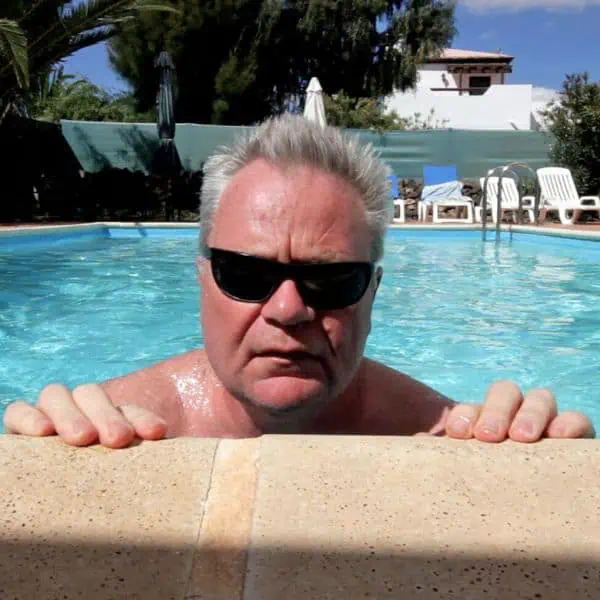

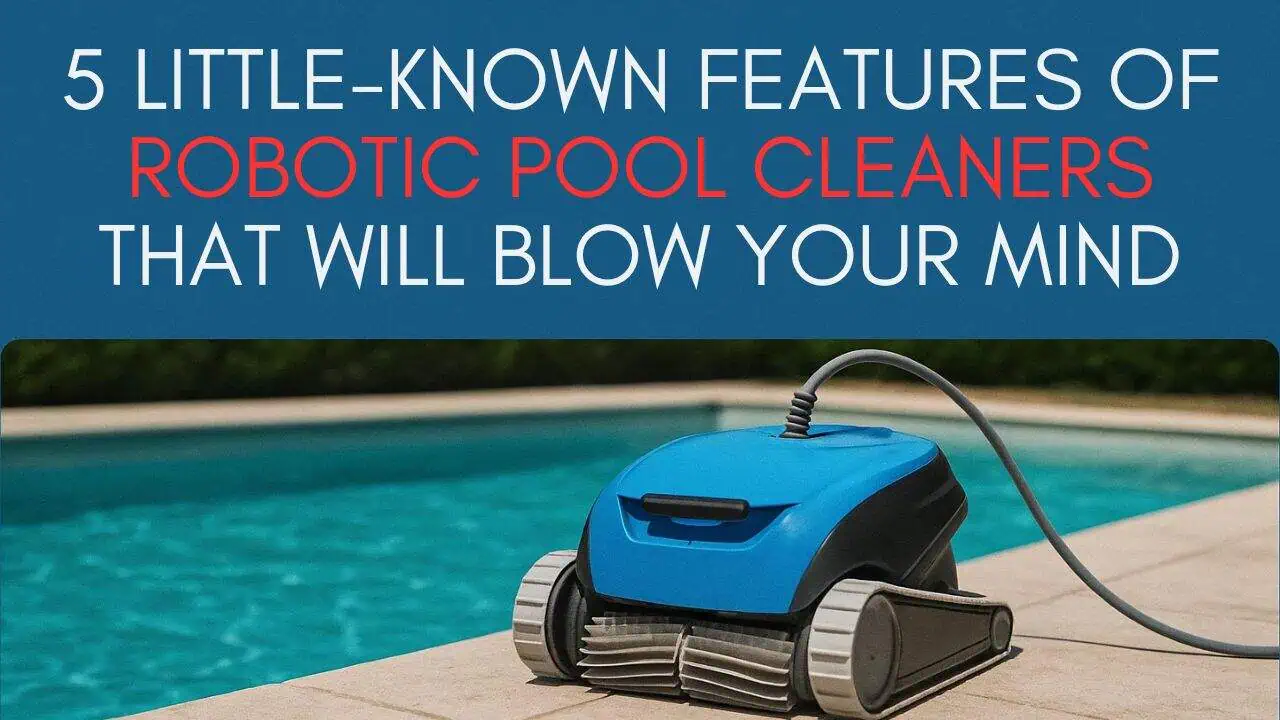
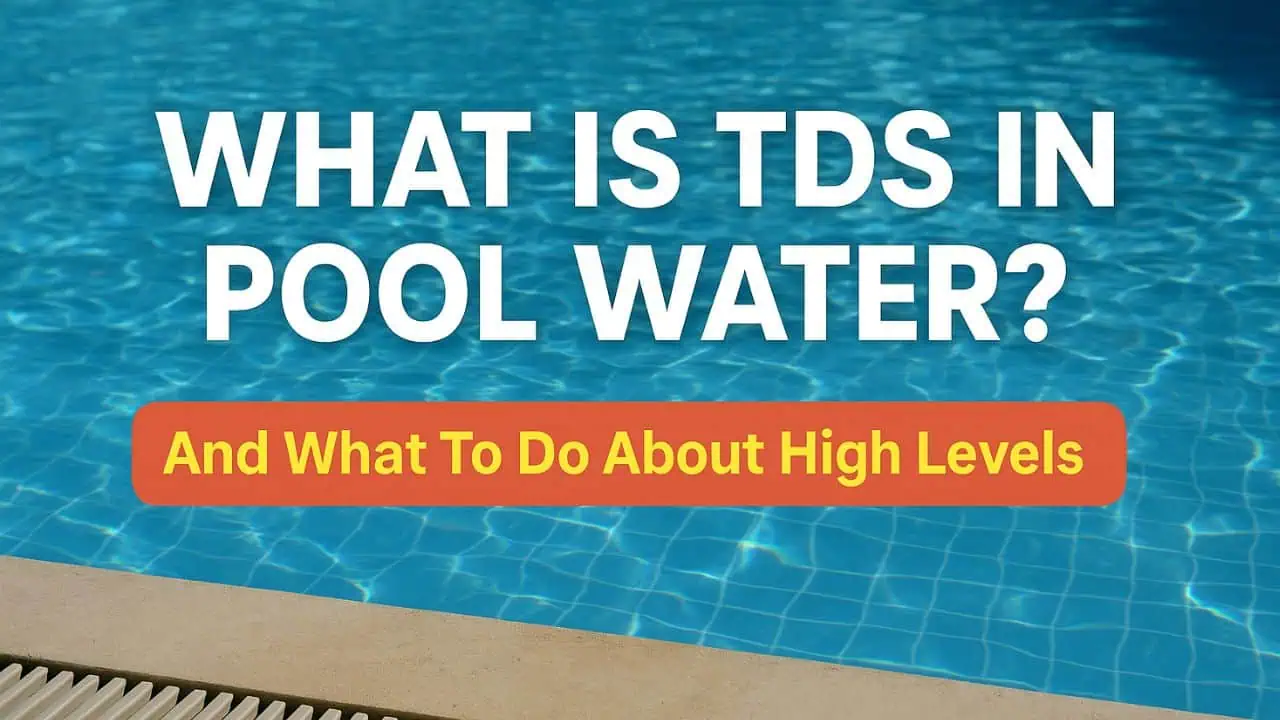
Leave a Reply